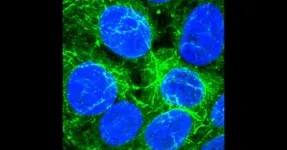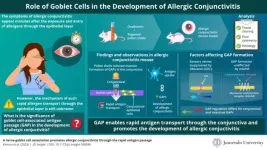Under the contract, CastleVax will conduct a Phase 2b efficacy study enrolling 10,000 trial participants; half will receive a single intranasal dose of CastleVax’s next-generation NDV-HXP-S vaccine and half will receive a single intramuscular dose of a currently licensed COVID-19 booster vaccine. All study participants will be actively monitored post-vaccination for the occurrence of SARS-CoV-2 breakthrough infection. Based upon pre-clinical and Phase 1 clinical data, it is expected that participants receiving CastleVax’s next-generation, nasally-delivered, NDV-HXP-S COVID-19 booster vaccine will demonstrate reduced numbers of SARS-CoV-2 breakthrough infections relative to individuals who received the standard systemic booster vaccine. Importantly, the manufacture of the NDV-HXP-S vaccine needed for the Phase 2b study was made possible by a $4 million grant to CastleVax from the Empire State Development’s New York Biodefense Commercialization Fund.
“We see the potential of CastleVax’s next-generation, COVID-19 vaccine to protect against breakthrough infection and transmission,” said Michael Egan, PhD, CastleVax CEO and Chief Scientific Officer.
“Currently licensed COVID-19 vaccines have saved countless lives over the last 3 years, but it is widely appreciated that these current vaccines are limited in stopping SARS-CoV-2 infection and transmission. Our NDV-vectored, next-generation, COVID-19 booster vaccine was designed specifically to address this issue. In pre-clinical and early clinical studies, CastleVax’s NDV-vectored COVID-19 booster vaccine, when delivered intranasally, has demonstrated induction of potent mucosal immune responses with the potential to block infection and halt transmission. With BARDA support, CastleVax will formally evaluate the ability of our vaccine to prevent infection and transmission. This award is a continuation of the success we have seen in our other COVID-19 booster vaccine development efforts. CastleVax also has a systemically delivered, NDV-vectored vaccine to address inequity in vaccine access. This vaccine has completed Phase 3 clinical trials and is poised for regulatory approval. Only through the development of new vaccine approaches that are globally accessible and capable of preventing infection and transmission can we hope to put an end to the current global pandemic.”
“Next-generation nasally delivered vaccines that elicit robust mucosal immune responses may be a game changer in our fight against infectious diseases like COVID-19,” said Erik Lium, PhD, Chief Commercial Innovation Officer, Mount Sinai Health System, and President, Mount Sinai Innovation Partners. “This funding enables CastleVax to thoroughly evaluate the ability of its nasally delivered COVID-19 booster vaccine to prevent infection and decrease transmission and will substantially advance our understanding of mucosal immunity, infection and transmission.”
Since SARS-CoV-2 is spread through the air, a vaccine inducing an immune response in the respiratory tract will increase protection against COVID-19 infection and transmission,” said Peter Palese, PhD, Horace W. Goldsmith Professor and Chair Emeritus of Microbiology.
The Mount Sinai NDV-vectored vaccine platform was developed by Icahn Mount Sinai scientists Dr. Palese; Adolfo García-Sastre, PhD, Irene and Dr. Arthur M. Fishberg Professor of Medicine and Director of the Global Health and Emerging Pathogens Institute; Florian Krammer, PhD, Mount Sinai Professor in Vaccinology; and Weina Sun, PhD, Assistant Professor of Microbiology, and was licensed by Mount Sinai to CastleVax Inc. Mount Sinai has a financial interest in this technology and in CastleVax. Drs. Palese, García-Sastre, Krammer, and Sun also have a financial interest in this technology and in CastleVax pursuant to the Mount Sinai Intellectual Property Policy. Mount Sinai is represented on the CastleVax Board of Directors by Dr. Lium; Mr. Matthew Rosamond, Chief Financial Officer, Icahn Mount Sinai; and Mr. Stephen Harvey, MBA, Chief Financial Officer, Mount Sinai Health System. The phase 1 clinical trial mentioned herein is led by independent faculty investigators (Sean Liu, MD, PhD, Assistant Professor of Medicine (Infectious Diseases and Hospital Medicine) at Icahn Mount Sinai and Judith A. Aberg, MD, Chief of the Division of Infectious Diseases, Mount Sinai Health System) who have no financial interests in either the vaccine or CastleVax.
This project has been supported in whole or in part with federal funds from the U.S. Department of Health and Human Services; Administration for Strategic Preparedness and Response; Biomedical Advanced Research and Development Authority (BARDA), under contract number 75A50123C00065.
About NDV-HXP-S: The next-generation, NDV-HXP-S COVID-19 booster vaccine express a stabilized SARS-CoV-2 spike protein, utilizing HexaPro technology developed in the laboratory of Dr. Jason McLellan at The University of Texas at Austin and licensed to CastleVax. The live NDV-HXP-S vaccine has an attractive safety profile and low reactogenicity in humans as documented in several completed and on-going phase 1, 2 and 3 clinical trials (NCT04871737, NCT05205746, NCT05710783 and NCT05181709). In addition, clinical development of an inactivated version of the NDV-HXP-S COVID-19 vaccine is underway with partners in Thailand (NCT04764422), Vietnam (NCT04830800), and Brazil (NCT04993209, NCT05354024).
About CastleVax: In August of 2022, the Mount Sinai Health System launched CastleVax, Inc., a clinical-stage vaccine research and development company devoted to the commercial development of the NDV vaccine platform technology.
About Project NextGen: Project NextGen, a $5 billion initiative led by ASPR’s Biomedical Advanced Research and Development Authority (BARDA) in partnership with the National Institute of Allergy and Infectious Diseases (NIAID), coordinates across the federal government and the private sector to advance innovative vaccines and therapeutics into clinical trials, regulatory review, and potential commercial availability for the American people. The project builds on a better understanding of COVID-19 – with HHS developing, using, and constantly re-evaluating the strengths and weaknesses of current vaccines and therapeutics for over three years.
For more information on CastleVax and the NDV vaccine platform, visit https://www.castlevax.com.
About the Icahn School of Medicine at Mount Sinai
The Icahn School of Medicine at Mount Sinai is internationally renowned for its outstanding research, educational, and clinical care programs. It is the sole academic partner for the eight member hospitals* of the Mount Sinai Health System, one of the largest academic health systems in the United States, providing care to a large and diverse patient population.
Ranked 14th nationwide in National Institutes of Health (“NIH”) funding and among the 99th percentile in research dollars per investigator according to the Association of American Medical Colleges, Icahn Mount Sinai has a talented, productive, and successful faculty. More than 3,000 full-time scientists, educators and clinicians work within and across 34 academic departments and 35 multidisciplinary institutes, a structure that facilitates tremendous collaboration and synergy. Our emphasis on translational research and therapeutics is evident in such diverse areas as genomics/big data, virology, neuroscience, cardiology, geriatrics, as well as gastrointestinal and liver diseases.
Icahn Mount Sinai offers highly competitive MD, PhD, and master's degree programs, with current enrollment of approximately 1,300 students. It has the largest graduate medical education program in the country, with more than 2,000 clinical residents and fellows training throughout the Health System. In addition, more than 550 postdoctoral research fellows are in training within the Health System.
The Icahn School of Medicine at Mount Sinai is located in New York City on the border between the Upper East Side and East Harlem and classroom teaching takes place on a campus facing Central Park. Icahn Mount Sinai's location offers many opportunities to interact with and care for diverse communities. Learning extends well beyond the borders of our physical campus, to the eight hospitals of the Mount Sinai Health System, our academic affiliates, and globally.
About Mount Sinai Innovation Partners (MSIP)
Mount Sinai Innovation Partners (MSIP) is responsible for advancing the real-world application and commercialization of Mount Sinai discoveries and inventions, and the development of research partnerships with industry. Our aim is to translate discoveries and inventions into healthcare products and services that benefit patients and society. MSIP is accountable for the full spectrum of commercialization activities required to bring Mount Sinai inventions to life.
For more information, please visit https://ip.mountsinai.org.
About the Mount Sinai Health System
Mount Sinai Health System is one of the largest academic medical systems in the New York metro area, with more than 43,000 employees working across eight hospitals, over 400 outpatient practices, nearly 300 research laboratories, a school of nursing, and a leading school of medicine and graduate education. Mount Sinai advances health for all people, everywhere, by taking on the most complex health care challenges of our time — discovering and applying new scientific learning and knowledge; developing safer, more effective treatments; educating the next generation of medical leaders and innovators; and supporting local communities by delivering high-quality care to all who need it.
Through the integration of its hospitals, labs, and schools, Mount Sinai offers comprehensive health care solutions from birth through geriatrics, leveraging innovative approaches such as artificial intelligence and informatics while keeping patients’ medical and emotional needs at the center of all treatment. The Health System includes approximately 7,300 primary and specialty care physicians; 13 joint-venture outpatient surgery centers throughout the five boroughs of New York City, Westchester, Long Island, and Florida; and more than 30 affiliated community health centers. We are consistently ranked by U.S. News & World Report's Best Hospitals, receiving high "Honor Roll" status, and are highly ranked: No. 1 in Geriatrics and top 20 in Cardiology/Heart Surgery, Diabetes/Endocrinology, Gastroenterology/GI Surgery, Neurology/Neurosurgery, Orthopedics, Pulmonology/Lung Surgery, Rehabilitation, and Urology. New York Eye and Ear Infirmary of Mount Sinai is ranked No. 12 in Ophthalmology. U.S. News & World Report’s “Best Children’s Hospitals” ranks Mount Sinai Kravis Children's Hospital among the country’s best in several pediatric specialties.
For more information, visit https://www.mountsinai.org or find Mount Sinai on Facebook, Twitter and YouTube.
CastleVax, a clinical stage vaccine platform company, has received a Project NexGen award valued at up to $338 million from the Biomedical Advanced Research and Development Authority (BARDA), part of the Administration for Strategic Preparedness and Response (ASPR) in the U.S. Department of Health and Human Services (HHS), to support the development of a next-generation, booster vaccine to protect against COVID-19 for years to come. The initial phase of the award provides approximately $8.5 million to plan a Phase 2b clinical trial that would compare CastleVax’s vaccine to currently authorized comparators. The funding will be used to advance CastleVax’s NDV-HXP-S COVID-19 booster vaccine, a nasally-delivered vaccine that uses technology developed at Icahn School of Medicine at Mount Sinai, into Phase 2b clinical efficacy testing. Project NextGen, a $5 billion initiative led by BARDA in partnership with the National Institute of Allergy and Infectious Diseases (NIAID), coordinates across the federal government and the private sector to advance innovative vaccines and therapeutics into clinical trials, regulatory review, and potential commercial availability.
Under the contract, CastleVax will conduct a Phase 2b efficacy study enrolling 10,000 trial participants; half will receive a single intranasal dose of CastleVax’s next-generation NDV-HXP-S vaccine and half will receive a single intramuscular dose of a currently licensed COVID-19 booster vaccine. All study participants will be actively monitored post-vaccination for the occurrence of SARS-CoV-2 breakthrough infection. Based upon pre-clinical and Phase 1 clinical data, it is expected that participants receiving CastleVax’s next-generation, nasally-delivered, NDV-HXP-S COVID-19 booster vaccine will demonstrate reduced numbers of SARS-CoV-2 breakthrough infections relative to individuals who received the standard systemic booster vaccine. Importantly, the manufacture of the NDV-HXP-S vaccine needed for the Phase 2b study was made possible by a $4 million grant to CastleVax from the Empire State Development’s New York Biodefense Commercialization Fund.
“We see the potential of CastleVax’s next-generation, COVID-19 vaccine to protect against breakthrough infection and transmission,” said Michael Egan, PhD, CastleVax CEO and Chief Scientific Officer.
“Currently licensed COVID-19 vaccines have saved countless lives over the last 3 years, but it is widely appreciated that these current vaccines are limited in stopping SARS-CoV-2 infection and transmission. Our NDV-vectored, next-generation, COVID-19 booster vaccine was designed specifically to address this issue. In pre-clinical and early clinical studies, CastleVax’s NDV-vectored COVID-19 booster vaccine, when delivered intranasally, has demonstrated induction of potent mucosal immune responses with the potential to block infection and halt transmission. With BARDA support, CastleVax will formally evaluate the ability of our vaccine to prevent infection and transmission. This award is a continuation of the success we have seen in our other COVID-19 booster vaccine development efforts. CastleVax also has a systemically delivered, NDV-vectored vaccine to address inequity in vaccine access. This vaccine has completed Phase 3 clinical trials and is poised for regulatory approval. Only through the development of new vaccine approaches that are globally accessible and capable of preventing infection and transmission can we hope to put an end to the current global pandemic.”
“Next-generation nasally delivered vaccines that elicit robust mucosal immune responses may be a game changer in our fight against infectious diseases like COVID-19,” said Erik Lium, PhD, Chief Commercial Innovation Officer, Mount Sinai Health System, and President, Mount Sinai Innovation Partners. “This funding enables CastleVax to thoroughly evaluate the ability of its nasally delivered COVID-19 booster vaccine to prevent infection and decrease transmission and will substantially advance our understanding of mucosal immunity, infection and transmission.”
Since SARS-CoV-2 is spread through the air, a vaccine inducing an immune response in the respiratory tract will increase protection against COVID-19 infection and transmission,” said Peter Palese, PhD, Horace W. Goldsmith Professor and Chair Emeritus of Microbiology.
The Mount Sinai NDV-vectored vaccine platform was developed by Icahn Mount Sinai scientists Dr. Palese; Adolfo García-Sastre, PhD, Irene and Dr. Arthur M. Fishberg Professor of Medicine and Director of the Global Health and Emerging Pathogens Institute; Florian Krammer, PhD, Mount Sinai Professor in Vaccinology; and Weina Sun, PhD, Assistant Professor of Microbiology, and was licensed by Mount Sinai to CastleVax Inc. Mount Sinai has a financial interest in this technology and in CastleVax. Drs. Palese, García-Sastre, Krammer, and Sun also have a financial interest in this technology and in CastleVax pursuant to the Mount Sinai Intellectual Property Policy. Mount Sinai is represented on the CastleVax Board of Directors by Dr. Lium; Mr. Matthew Rosamond, Chief Financial Officer, Icahn Mount Sinai; and Mr. Stephen Harvey, MBA, Chief Financial Officer, Mount Sinai Health System. The phase 1 clinical trial mentioned herein is led by independent faculty investigators (Sean Liu, MD, PhD, Assistant Professor of Medicine (Infectious Diseases and Hospital Medicine) at Icahn Mount Sinai and Judith A. Aberg, MD, Chief of the Division of Infectious Diseases, Mount Sinai Health System) who have no financial interests in either the vaccine or CastleVax.
This project has been supported in whole or in part with federal funds from the U.S. Department of Health and Human Services; Administration for Strategic Preparedness and Response; Biomedical Advanced Research and Development Authority (BARDA), under contract number 75A50123C00065.
About NDV-HXP-S: The next-generation, NDV-HXP-S COVID-19 booster vaccine express a stabilized SARS-CoV-2 spike protein, utilizing HexaPro technology developed in the laboratory of Dr. Jason McLellan at The University of Texas at Austin and licensed to CastleVax. The live NDV-HXP-S vaccine has an attractive safety profile and low reactogenicity in humans as documented in several completed and on-going phase 1, 2 and 3 clinical trials (NCT04871737, NCT05205746, NCT05710783 and NCT05181709). In addition, clinical development of an inactivated version of the NDV-HXP-S COVID-19 vaccine is underway with partners in Thailand (NCT04764422), Vietnam (NCT04830800), and Brazil (NCT04993209, NCT05354024).
About CastleVax: In August of 2022, the Mount Sinai Health System launched CastleVax, Inc., a clinical-stage vaccine research and development company devoted to the commercial development of the NDV vaccine platform technology.
About Project NextGen: Project NextGen, a $5 billion initiative led by ASPR’s Biomedical Advanced Research and Development Authority (BARDA) in partnership with the National Institute of Allergy and Infectious Diseases (NIAID), coordinates across the federal government and the private sector to advance innovative vaccines and therapeutics into clinical trials, regulatory review, and potential commercial availability for the American people. The project builds on a better understanding of COVID-19 – with HHS developing, using, and constantly re-evaluating the strengths and weaknesses of current vaccines and therapeutics for over three years.
For more information on CastleVax and the NDV vaccine platform, visit https://www.castlevax.com.
About the Icahn School of Medicine at Mount Sinai
The Icahn School of Medicine at Mount Sinai is internationally renowned for its outstanding research, educational, and clinical care programs. It is the sole academic partner for the eight member hospitals* of the Mount Sinai Health System, one of the largest academic health systems in the United States, providing care to a large and diverse patient population.
Ranked 14th nationwide in National Institutes of Health (“NIH”) funding and among the 99th percentile in research dollars per investigator according to the Association of American Medical Colleges, Icahn Mount Sinai has a talented, productive, and successful faculty. More than 3,000 full-time scientists, educators and clinicians work within and across 34 academic departments and 35 multidisciplinary institutes, a structure that facilitates tremendous collaboration and synergy. Our emphasis on translational research and therapeutics is evident in such diverse areas as genomics/big data, virology, neuroscience, cardiology, geriatrics, as well as gastrointestinal and liver diseases.
Icahn Mount Sinai offers highly competitive MD, PhD, and master's degree programs, with current enrollment of approximately 1,300 students. It has the largest graduate medical education program in the country, with more than 2,000 clinical residents and fellows training throughout the Health System. In addition, more than 550 postdoctoral research fellows are in training wih the Health System. The Icahn School of Medicine at Mount Sinai is located in New York City on the border between the Upper East Side and East Harlem and classroom teaching takes place on a campus facing Central Park. Icahn Mount Sinai's location offers many opportunities to interact with and care for diverse communities. Learning extends well beyond the borders of our physical campus, to the eight hospitals of the Mount Sinai Health System, our academic affiliates, and globally.
About Mount Sinai Innovation Partners (MSIP)
Mount Sinai Innovation Partners (MSIP) is responsible for advancing the real-world application and commercialization of Mount Sinai discoveries and inventions, and the development of research partnerships with industry. Our aim is to translate discoveries and inventions into healthcare products and services that benefit patients and society. MSIP is accountable for the full spectrum of commercialization activities required to bring Mount Sinai inventions to life. For more information, please visit https://ip.mountsinai.org.
About the Mount Sinai Health System
Mount Sinai Health System is one of the largest academic medical systems in the New York metro area, with more than 43,000 employees working across eight hospitals, over 400 outpatient practices, nearly 300 research laboratories, a school of nursing, and a leading school of medicine and graduate education. Mount Sinai advances health for all people, everywhere, by taking on the most complex health care challenges of our time — discovering and applying new scientific learning and knowledge; developing safer, more effective treatments; educating the next generation of medical leaders and innovators; and supporting local communities by delivering high-quality care to all who need it.
Through the integration of its hospitals, labs, and schools, Mount Sinai offers comprehensive health care solutions from birth through geriatrics, leveraging innovative approaches such as artificial intelligence and informatics while keeping patients’ medical and emotional needs at the center of all treatment. The Health System includes approximately 7,300 primary and specialty care physicians; 13 joint-venture outpatient surgery centers throughout the five boroughs of New York City, Westchester, Long Island, and Florida; and more than 30 affiliated community health centers. We are consistently ranked by U.S. News & World Report's Best Hospitals, receiving high "Honor Roll" status, and are highly ranked: No. 1 in Geriatrics and top 20 in Cardiology/Heart Surgery, Diabetes/Endocrinology, Gastroenterology/GI Surgery, Neurology/Neurosurgery, Orthopedics, Pulmonology/Lung Surgery, Rehabilitation, and Urology. New York Eye and Ear Infirmary of Mount Sinai is ranked No. 12 in Ophthalmology. U.S. News & World Report’s “Best Children’s Hospitals” ranks Mount Sinai Kravis Children's Hospital among the country’s best in several pediatric specialties. For more information, visit https://www.mountsinai.org or find Mount Sinai on Facebook, Twitter and YouTube.
END





